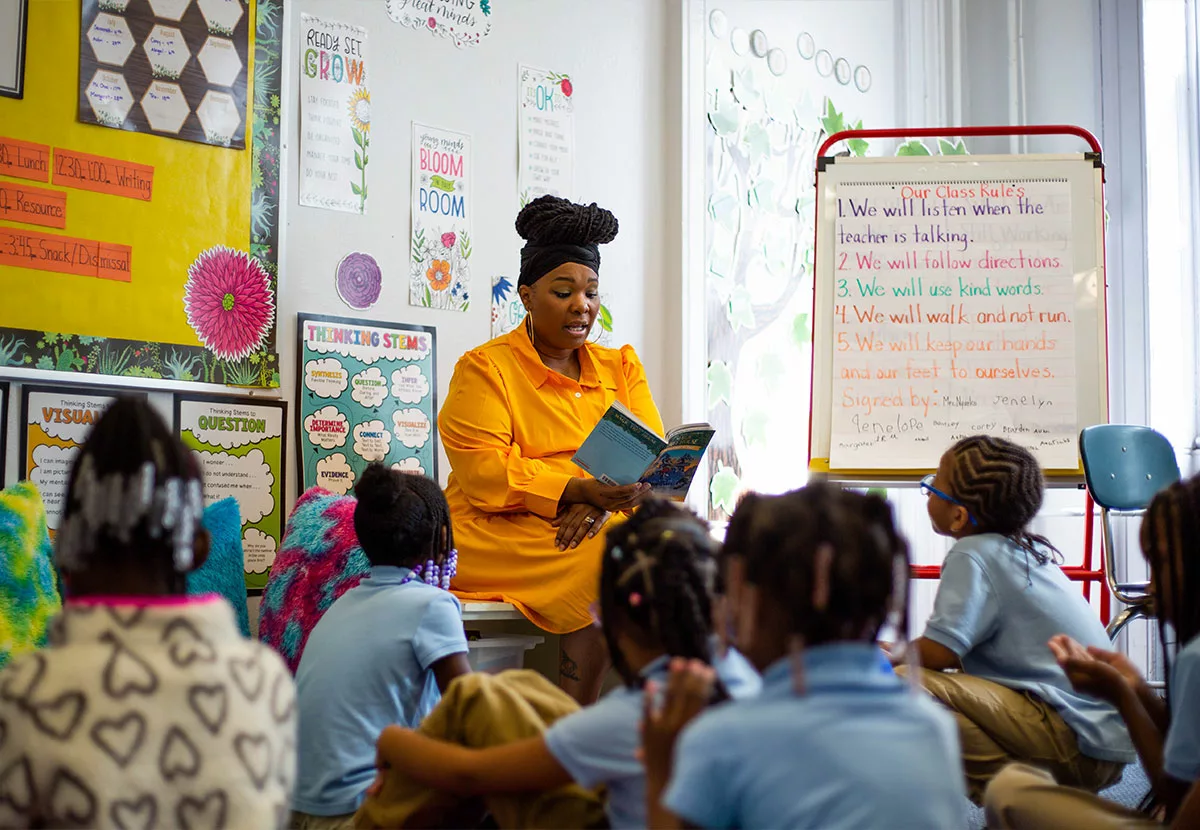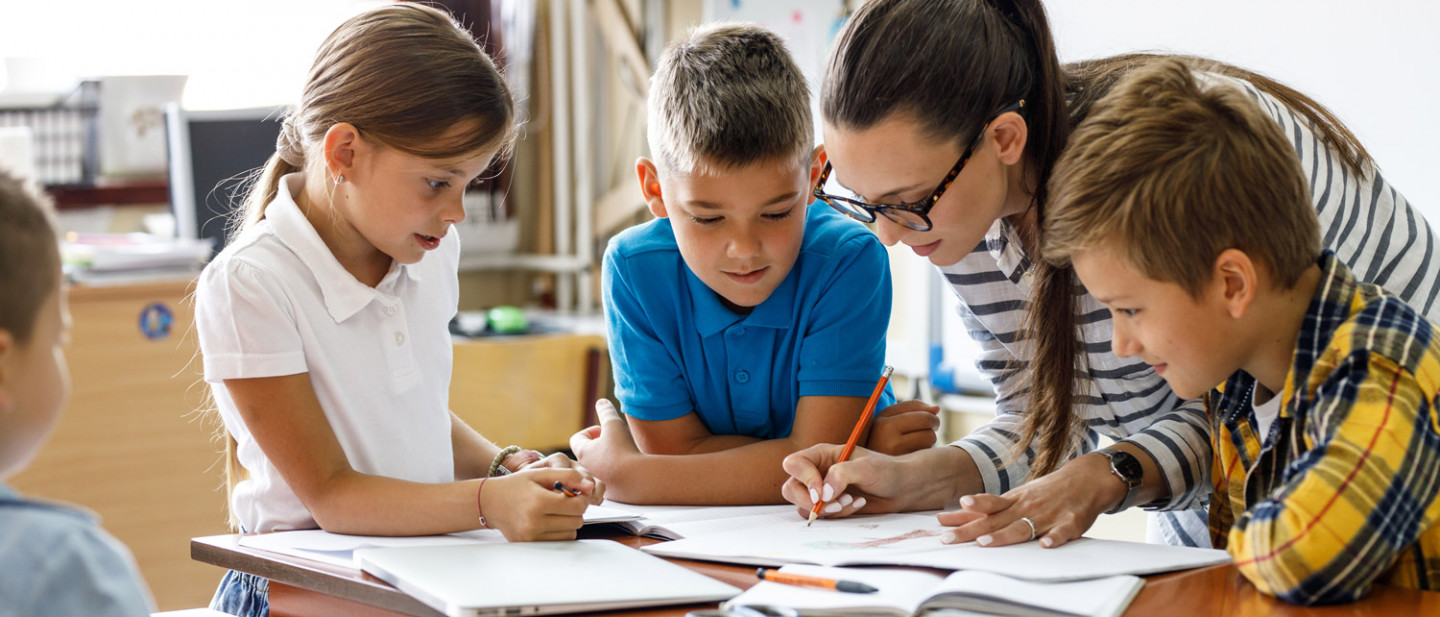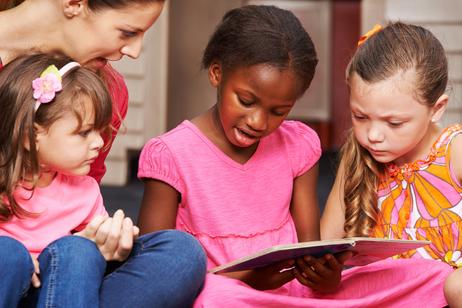The Benefits of Enrolling Your Child in a Trusted Private School Program
Wiki Article
Variables to Consider in Choosing Private Institution: Recognizing What Each Organization Has to Offer for Your Kid's Growth
Choosing a personal school for a child entails mindful consideration of several aspects. Moms and dads need to examine the academic educational program and training ideologies of numerous establishments. They should additionally check out after-school activities that might enrich their youngster's experience. Furthermore, comprehending the institution's society and worths is important for alignment with household ideas. As financial effects play a substantial duty, it is crucial to weigh tuition expenses against readily available scholarships. Just how do these aspects shape a youngster's growth path?Academic Curriculum and Teaching Ideology
When choosing an independent school, understanding the scholastic educational program and teaching viewpoint is important, as these elements significantly affect a youngster's instructional experience. Moms and dads ought to explore the college's method to training and the subjects offered, as this can differ significantly among organizations. Some schools might take on a standard curriculum concentrated on core topics, while others could emphasize project-based learning or interdisciplinary research studies.In addition, the teaching ideology can form class dynamics and student involvement. Institutions that focus on a student-centered method often foster important thinking and cooperation, while those with a much more organized setting might concentrate on discipline and foundational abilities.
Extracurricular Tasks and Enrichment Programs

Importance of Diverse Activities
While academic excellence is typically prioritized in personal institutions, the relevance of varied activities, including extracurricular activities and enrichment programs, can not be overstated. These tasks play an essential duty in a youngster's all natural growth, using opportunities for creative thinking, important thinking, and synergy. Engaging in numerous pursuits allows pupils to discover their rate of interests, uncover new interests, and establish important life abilities, such as time management and self-discipline. Additionally, varied activities can cultivate a sense of belonging and area, improving the general college experience. By taking part in clubs, sporting activities, and artistic ventures, trainees not just enrich their education and learning yet also produce remarkable experiences that add to their personal development. As a result, diverse tasks are essential to cultivating well-shaped individuals.Influence on Social Abilities
Exactly how do after-school activities and enrichment programs influence a youngster's social abilities? These programs supply vital opportunities for kids to interact with peers beyond the traditional class setting. Involving in arts, clubs, or sports fosters dispute, interaction, and teamwork resolution. Children discover to browse diverse social atmospheres, improving their ability to establish and develop friendships empathy. Furthermore, participating in various activities encourages confidence, as kids tackle new difficulties and obligations. As they work together on projects or contend in teams, they likewise obtain useful experience in leadership and teamwork. Eventually, a rich array of extracurricular offerings adds significantly to a child's social development, preparing them for future social communications in both academic and individual contexts.College Society and Worths
Comprehending the college culture and values is vital for parents reviewing private education alternatives, as these components greatly influence a kid's overall experience. Each institution embodies unique approaches, customs, and social standards that form trainees' every day lives. A school that stresses inclusivity may foster an encouraging atmosphere, encouraging youngsters to establish compassion and regard for varied histories. On the other hand, institutions that prioritize scholastic excellence may produce an affordable atmosphere, inspiring pupils to go for high achievement.The placement of a college's values with a household's ideas can boost a youngster's feeling of belonging, enhancing favorable habits and perspectives. Moms and dads must examine the school's goal declaration, review its disciplinary plans, and observe trainee interactions to assess the prevailing culture. Inevitably, a college's culture and values substantially impact not only academic success but also personal growth, furnishing kids with crucial life abilities for their future.
Class Dimension and Student-Teacher Ratio
Class dimension and student-teacher proportion play an essential function in the educational experience provided by personal colleges. Smaller sized courses frequently result in enhanced specific interest, fostering better pupil interaction and understanding. Research shows that these elements can significantly affect discovering end results, making them necessary considerations for moms and dads.Advantages of Smaller Classes
Smaller sized class sizes substantially enhance the educational experience by promoting more tailored attention from instructors. In pop over to this site these environments, instructors can tailor their guideline to fulfill private trainee needs, permitting a deeper understanding of the product. With fewer students, educators can more quickly recognize those who may be battling and provide prompt support. This close communication can cultivate stronger relationships in between trainees and instructors, creating an encouraging environment conducive to learning. In addition, smaller sized classes typically promote better participation, as pupils may feel a lot more comfortable voicing their inquiries and thoughts. This vibrant motivates collaborative learning and boosts overall class engagement. Inevitably, the advantages of smaller courses add extremely to an all-around instructional experience that prioritizes student advancement and growth.Influence On Discovering Outcomes
The benefits of smaller classes extend beyond tailored focus, greatly influencing discovering results. Research study regularly shows that a lower student-teacher proportion fosters improved involvement, allowing instructors to tailor direction to private needs. This environment encourages active participation, crucial thinking, and deeper understanding of the product. In smaller settings, educators can better determine and deal with learning spaces, resulting in enhanced academic efficiency. Grade School. Additionally, students usually really feel more comfortable revealing their ideas and asking concerns, which can additionally improve the discovering experience. Conversely, larger course dimensions might restrict interaction and comments, potentially impeding pupil development. As an outcome, when assessing independent schools, households ought to think about class dimension and student-teacher ratios as considerable elements influencing their youngster's educational successNeighborhood Interaction and Parental Involvement
Just how can community involvement and parental involvement boost the academic experience secretive institutions? These components play a crucial role in improving the learning atmosphere. When moms and dads actively take part in institution activities, they cultivate a feeling of belonging and support amongst students. This participation can take different types, such as offering for occasions, attending meetings, or signing up with committees, which not only enhances the college community yet also boosts communication between educators and households.Neighborhood involvement extends this assistance by linking the college with neighborhood organizations, services, and cultural institutions (Private School). Such collaborations supply students with special knowing possibilities, including teaching fellowships and workshops, which add to their general development. Furthermore, colleges that prioritize these links typically produce an even more comprehensive atmosphere, enabling varied perspectives to be shared. Ultimately, community involvement and adult involvement serve to develop a collective and encouraging setting that adds positively to students' academic and social success
Financial Considerations and Scholarships
Steering the economic landscape of independent schools can be an intricate procedure for households. Tuition expenses differ substantially, often influenced by elements such as location, centers, and the institution's credibility. Families need to examine their financial scenario, taking into consideration not only tuition however likewise extra expenses like uniforms, fees, and extracurricular activities.Many independent schools provide scholarship programs aimed at bring in diverse pupil populaces - Grade School. These scholarships can alleviate monetary worries and make top quality education accessible to households with varying revenue degrees. It is crucial for parents to ask about the accessibility of merit-based and need-based scholarships and comprehend the application procedures included
In addition, some schools offer versatile repayment plans that can ease immediate economic stress. By reviewing all monetary aspects and checking out scholarship chances, families can make enlightened choices that line up with their monetary restrictions and instructional goals.
Regularly Asked Inquiries
Just How Do Institutions Support Students With Learning Disabilities?
Colleges support pupils with discovering impairments through customized education plans, specialized teaching methods, and added sources. They frequently supply customized treatments, accessibility to sustain staff, and inclusive atmospheres to promote have a peek here emotional and academic growth.What Is the School's Method to Technique and Behavior Monitoring?
The school's technique to technique and actions administration stresses favorable support, clear assumptions, and corrective methods. Staff actively engage pupils in discussions concerning actions, cultivating an encouraging atmosphere that urges individual responsibility and accountability.Just How Do Colleges Take Care Of Trainee Shifts, Such as Transferring To Higher Qualities?
Schools commonly supply organized assistance throughout student modifications, consisting of alignment programs, mentorship home chances, and tailored academic preparation. These actions aim to alleviate anxiousness, promote change, and assurance students are planned for the obstacles of higher qualities.What Are the School's Policies on Technology Use in the Classroom?

How Do Schools Evaluate Trainee Progression and Provide Feedback to Parents?
Schools examine trainee progression via regular assessments, including tests, projects, and classroom participation. Responses is offered to moms and dads by means of progress report, parent-teacher conferences, and on-line websites, ensuring continual communication about each child's scholastic development.
Report this wiki page